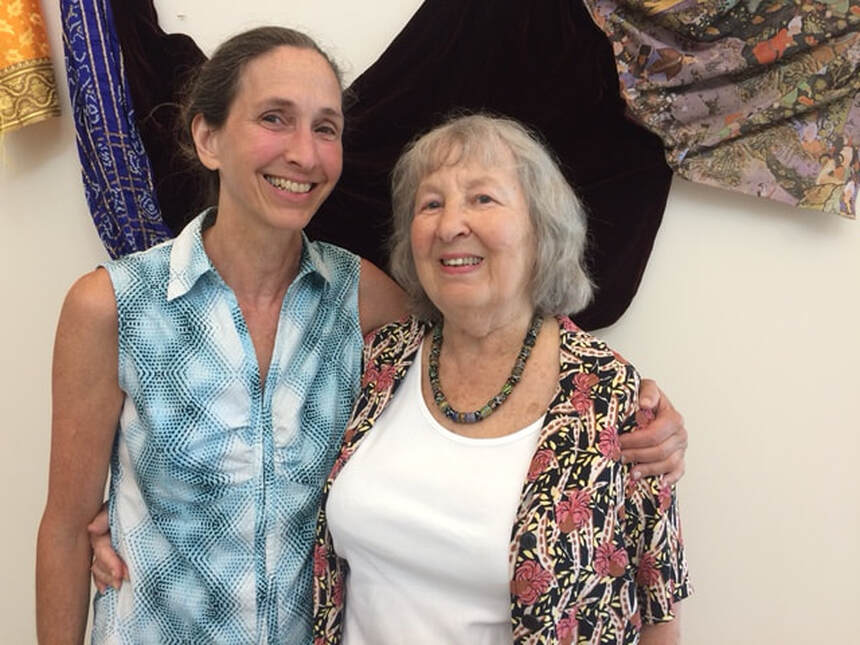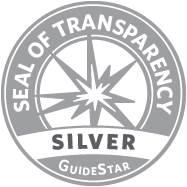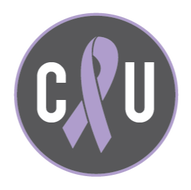Curtain Up Cancer Foundation
|
We don't look alike: she's blue-eyed, pale-skinned, and had blonde hair, while I've got dark eyes, skin, and hair - more like my dad. I'm several inches taller, an apparently totally different body type. She has large breasts, and only when I was pregnant with and nursing my daughter did I. We both have longish noses, though - not quite aquiline - and we both wear a lot of thrift store clothes...her thrift store "eyes" are still impeccable. My mother Ruth and I are both hunter-gatherers, collectors of way too much beautiful/weird/objects/textiles...stuff...hers verges on humorous and the human-made - phallic banana and carrot collections in too many media to mention, cats, of course(?), amazing antique (from thrift stores) lace, and, my favorite, a sprawling collection of women- and girl-figures from all parts of the world, flowing from her small fireplace mantle, her "goddesses". My collections veer toward raw nature: broken bird's eggshells, seeds I capture and rarely plant, fantastic found roots and other parts of trees, rocks from every creek I step into, seashells, seaweed, and other extracts from every visit to every seashore, apparently irresistible feathers and bones... And we're both visual artists with a media overlap in textiles, the most mother-daughter medium possible?! Her work has always been humorous, pop-aware, and relatable, whereas mine more often expressively walks the spirit-matter tightrope...we intersect, perhaps, somewhere on the sublime-ridiculous continuum...We have some similar facial expressions and vocal inflections, a similar laugh, and I'd like to think she passed down some of her humor, although possibly darkened, singed, to me. My mother is mostly Mozart, I am basically Brahms. She's so witty, but she can also be wickedly mean. And I tilt toward the melancholic.
For the past five years, since her spinal surgery, I've been one of my mother's main caregivers, and every day it's like foreseeing my train wreck, too. We have similar fused sacral-lumbar vertebrae -- she used to call us, euphemistically, short-waisted -- and I used to think that was the extent of the clearly-not-so-useful body-genetics I inherited from her. But twelve years ago I was diagnosed with the same rare blood disease she has (about 1 in 100,000 of the general population, 1 in a million chances of intra-family occurrences! - reverse lottery!) And for the past eight years, I've been living in what was her house...So, she generously shared her quirky house - bamboo back yard and all - and her mutated genes with me, and at the best of times, her sense of humor. "What can I get for you?" I ask her on my way to visit. "A life." "The only thing I like now is my bed, and my chair...and my TV...the holy trinity..!" says my Jewish mother. Before I was diagnosed, I had no idea how frightening a chronic rare blood disease diagnosis is; my mother faced it alone. She went alone to the hematologist, and when necessary, a phlebotomist, the first line of treatment for this disease. She'd say, "I went for my bloodletting," alluding to a medieval medical treatment, and sometimes, "They did everything but the leeches." How bizarre that this ancient method - except for the leeches! - is a viable treatment for what seems to be a relatively new-fangled cousin of cancer. Sometimes, as an artist, when I see the blood dripping or pouring from my vein through a clear tube into a clear jar, I see gorgeous deep red paint. But no one can use it; I can't even donate it because of its invisible but tragic flaw, a mutated gene, jak2 v617f. Polycythemia vera, like most cancers, is the result of an acquired genetic mutation, something that neither of us was born with, but that started on its renegade path somewhere along the way. Does the fact that I have what my mother has also make mine possibly an inherited genetic mutation? Polycythemia vera is one of a small group blood disorders called myeloproliferative neoplasms: "A type of disease in which the bone marrow makes too many red blood cells, platelets, or certain white blood cells. Myeloproliferative neoplasms usually get worse over time as the number of extra cells build up in the blood and/or bone marrow. This may cause bleeding problems, anemia, infection, fatigue, or other signs and [I'll say, scary] symptoms." (National Cancer Institute) First time I have said or read anything like this aloud...! My mother recently told me this story: she was seven or eight years old, tiny for her age, walking home from school for lunch, as usual. No one was home - it was WWII, and her mom was working downtown, while her dad, an eye doctor, called for military service, was in the South Pacific. She turned on the gas stove to heat up some soup, lit a match, and frightened, dropped the match, which leaped onto the skirt of her favorite sailor-dress. She somehow put it out, she can't remember how...I asked her, "Weren't you scared, what did you do, did you scream?" And she said matter-of-factly, "No, no one was there, no one would have helped me, even if they were there...Why scream when no one would hear me? Or help me?" Recently, I found a sort of response, in a message I'd been saving for years. It's apparently from the Gnostic Gospels, a series of ancient texts that reference the New Testament, but they express very different views and beliefs from this better-known source. The message is mysterious...but now, it's crystallizing for me as a message for introverts everywhere, for people who keep things inside, who stay silent in spite of what they think or feel or know in their bones, who withhold and are withheld from, for families like mine who habitually keep secrets: "If you bring forth what is within you, what is within you will save you. If you do not bring forth what is within you, what is within you will destroy you." My mother's stifling of her own voice is an "if you do not". I learned how not to do it, too, with daily practice. Or innately? Or was it pre-ordained?...Our blood cells at some mysterious point started multiplying out of control, our bodies incapable of containing them, calling for forced release, the "bringing forth of what is within", the "bloodletting"... Did we, do we have a choice? No blame. But currently, no cure, either. When does the symbolic blend with the real? My mother's, now my, lush bamboo forest, over-growing, smothering every other living plant in its suffocatingly beautiful way...No blame. The over-collecting of odd and beautiful things, full of potential, let's just call it hoarding, whether obsessively ordered like my mother's, or more chaotic, like mine...so there's barely room for the space to inhale exhale to breathe...just like the way my mother's and my bodies make too many red blood cells, packing them in, making them cramped and misshapen, unable to breathe... No blame, some shame? Far for my daughter, Naomi. Note to her, note to self: you can't find "the source" of this river, so far...so let yourself, JUST LET IT ALL FLOW... And so I tell this unfolding story. How to move toward healing, and keep my daughter from being wounded similarly? Or is it too late? How to make lemonade out of lemons, or blood orange cake out of blood oranges? Are there choices in the unfolding...? I'm just trying to figure things out, with stories, and loaded but beautiful symbols like bamboo... I'm not looking for salvation, an escape, or even a detour, am I? A bridge over untroubled waters? Similar overlapping bottom teeth. Slight lisps. Never feeling like we're good enough. Never feeling like following the crowd. But always seeing a proliferation of possibilities. Proliferation (as in myeloproliferative): from Latin proles (“offspring”) + ferre (“to bear”). Hmmm... Imagine a soft, pre-pubescent girl's voice with the gravel of old age sprinkled in. I ask, "How are you doing this morning?" "Slowly but something..." (she won't say "surely") Another time, "The family keeps on growing on you, like a moss." She tells the doctor, deadpan, a week or so after she fell, and we ended up in two ER's, "I can't chew gum and walk at the same time." And she tells me, "You need to bring a diaper bag for me when we go out, and a pacifier, because I get really upset." She fell this past Wednesday night, again, and couldn't get up...a PBS nature program is on her bedroom TV when my partner Scott and I arrive. She'd maneuvered herself into an upright position, her back against the base of the recliner, like a doll on a shelf, facing the TV....exotic primates in sun-lit bamboo forests..."I like monkeys more and more," she says, in non-answer to our "How are you doing? Where do you hurt?"...on the TV, their primate-gestures, and their faces, are so human-like, of course...this one reminds us of this cousin or that uncle or that celebrity... Scott picks her up off the carpeted floor...the PBS program, boundlessly expansive, globe-hopping, flies over sublime, aqua bodies of water... She taught me to love the water, insisted I learn to swim when I was young. Swimming became my therapy when I moved to England with my new, now-ex-husband, and again, during my divorce. I've foregone swimming pools, all swimming, since March because of covid-19. But last winter while swimming, sometimes I suddenly felt my arms were her arms, and I saw her, immersed in the pale turquoise of the old Y pool, her hair in a meticulous bun, swimming in that determined but delicate, and sharp, metronomic way. Her voice like a child's and mine the voice of an oldest child, we're forever linked by our bodies of salty, metallic, deep red water.
0 Comments
Leave a Reply. |
Contact uS |
© Curtain Up Cancer Foundation. All rights reserved.
Curtain Up Cancer Foundation is a Texas nonprofit 501(c)(3) corporation. Donations are tax deductible to the extent of the law.
Curtain Up Cancer Foundation is a Texas nonprofit 501(c)(3) corporation. Donations are tax deductible to the extent of the law.

 RSS Feed
RSS Feed

